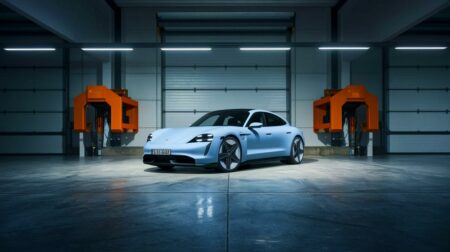To see how speedy transitioning to electric vehicles can be, look no further than Norway. In 2018, sales of EVs in this Scandinavian nation of 5.3 million grew by more than 40%.
Overall, one out of every three vehicles sold on the local market was a fully electric car, up from one out of every five in 2017. The average rate across Europe was just 2%.
Out of the total 147,929 new passenger cars registered last year in the Nordic nation, 31.2% were fully electric. Factoring in plug-in hybrid vehicles sold in Norway, that market share ballooned to 49.1%. In October alone, 45% of new cars were fully electric while 60% of all the vehicles sold that month were plug-in vehicles.

The reason for this mass adoption of EVs isn’t just that Norwegian car owners are increasingly environmentally conscious. Government policies have also played their part, including generous subsidies and other benefits. Vehicle import duties have been waived for buyers of electric vehicles and so have taxes on vehicle registration.
In addition, the owners of electric vehicles are also exempt from having to pay road tolls and they are allowed to use bus lanes in heavy traffic in city centers. “It should always be cheaper to have a zero emissions car than a regular car,” observes the country’s Climate and Environment Minister Ola Elvestuen.
The most popular fully electric vehicle model among Norwegian car buyers last year was the Nissan Leaf, followed by BMW’s i3 and Tesla’s Model X. “Buying a Tesla Model X is not much more expensive than buying a standard premium Volvo because petrol cars are taxed heavily,” explains Christina Bu, general secretary of the Norwegian Electric Vehicle Association. “That is also the reason Teslas sell well.”
The generous perks to buyers and owners of electric vehicles are in line with the country’s stated goal of having only zero-emissions cars sold in Norway by 2025 to help the country achieve its CO2 reduction targets. Under the 2015 Paris climate accord Norway has agreed to reduce its emissions of greenhouse gases by 40% by 2030, compared with 1990 levels.
“Cutting emissions from road transport will allow Norway to reduce the amount it has to spend buying up emissions certificates from other European countries to meet its target,” the Associated Press explains. “The savings are likely to run into billions, potentially balancing out the cost of subsidising electric cars.”
Although some of the generous benefits on EVs are set to be reduced as of 2021, Norwegian EV owners will continue to have to pay only half of what the owners of petrol cars pay in road tolls and other fees. According to plans, subsidies for electric cars will be gradually replaced by higher taxes on cars with internal combustion engines.
Did you like it? 4.5/5 (22)








